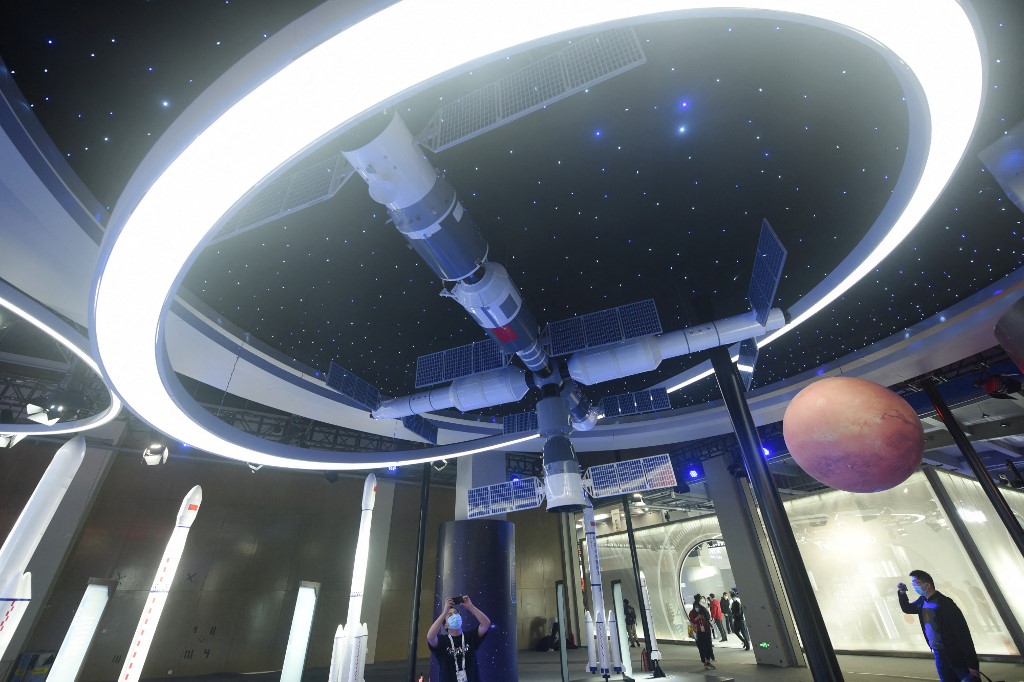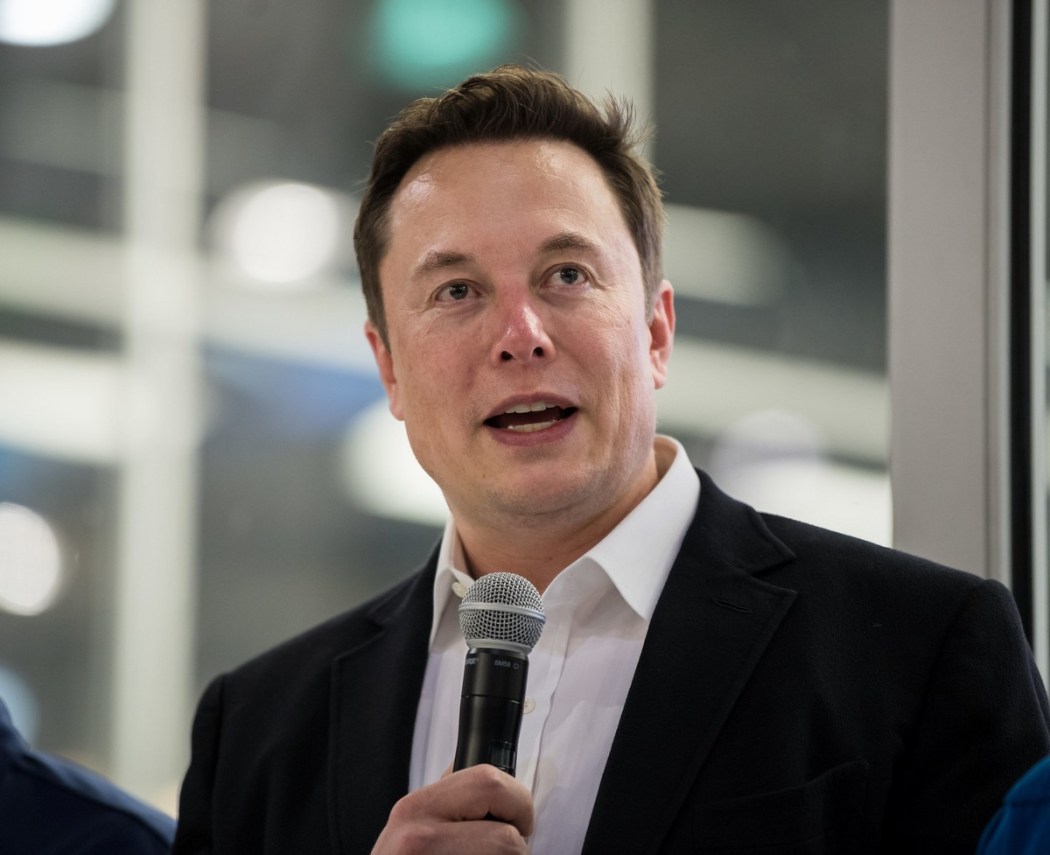Beijing on Tuesday accused the United States of irresponsible and unsafe conduct in space over two “close encounters” between the Chinese space station and satellites operated by Elon Musk’s SpaceX.
Tiangong, China’s new space station, had to manoeuvre to avoid colliding with one Starlink satellite in July and with another in October, according to a note submitted by Beijing to the United Nations space agency this month.

The note said the incidents “constituted dangers to the life or health of astronauts aboard the China Space Station”.
“The US… ignores its obligations under international treaties, posing a serious threat to the lives and safety of astronauts,” Chinese foreign ministry spokesman Zhao Lijian said at a routine briefing on Tuesday.
Starlink, a division of SpaceX, operates a constellation of close to 2,000 satellites that aims to provide internet access to most parts of Earth.
SpaceX is a private American company, independent of the US military and civilian space agency NASA.

But China said in its note to the UN that members of the Outer Space Treaty — the foundation of international space law — are also responsible for actions by their non-government entities.
Addressing reporters, US State Department spokesman Ned Price declined to respond specifically to the Chinese accusations.
“We have encouraged all countries with space programs to be responsible actors, to avoid acts that may put in danger astronauts, cosmonauts, others who are orbiting the Earth or who have the potential to,” Price said.
SpaceX has not responded to a request for comment.
Evasive manoeuvres to reduce the risk of collisions in space are becoming more frequent as more objects enter Earth’s orbit, said Jonathan McDowell of the Harvard-Smithsonian Center for Astrophysics.

“We’ve really noticed the increase in the number of close passes since Starlink started getting deployed,” he told AFP.
Any collision would likely “completely demolish” the Chinese space station and kill everyone on board, McDowell added.
The core module of China’s station Tiangong — meaning “heavenly palace” — entered orbit earlier this year, and it is expected to become fully operational next year.
‘Prepare to boycott Tesla’
Beijing’s complaint about Starlink prompted criticism on Chinese social media of SpaceX’s billionaire founder Musk, who is widely admired in China.
One hashtag about the topic on the Twitter-like Weibo platform racked up 90 million views Tuesday.

“How ironic that Chinese people buy Tesla, contributing large sums of money so Musk can launch Starlink, and then he (nearly) crashes into China’s space station,” one user commented.
Musk’s electric car maker Tesla sells tens of thousands of vehicles in China each month, though the firm’s reputation has taken a hit this year following a spate of crashes, scandals and data security concerns.
“Prepare to boycott Tesla,” said another Weibo user, echoing a common response in China to foreign brands perceived to be acting contrary to national interests.
Support HKFP | Policies & Ethics | Error/typo? | Contact Us | Newsletter | Transparency & Annual Report | Apps
Help safeguard press freedom & keep HKFP free for all readers by supporting our team

LATEST FROM HKFP
HKFP has an impartial stance, transparent funding, and balanced coverage guided by an Ethics Code and Corrections Policy.
Support press freedom & help us surpass 1,000 monthly Patrons: 100% independent, governed by an ethics code & not-for-profit.










